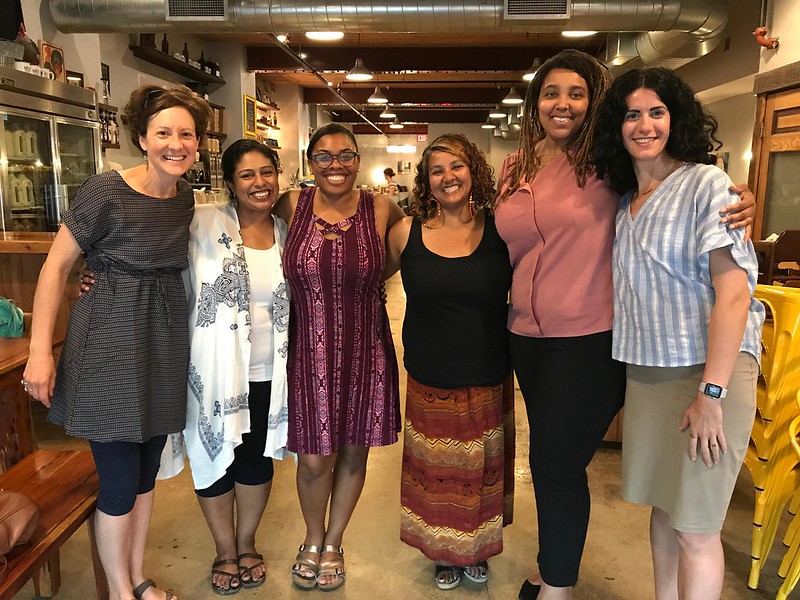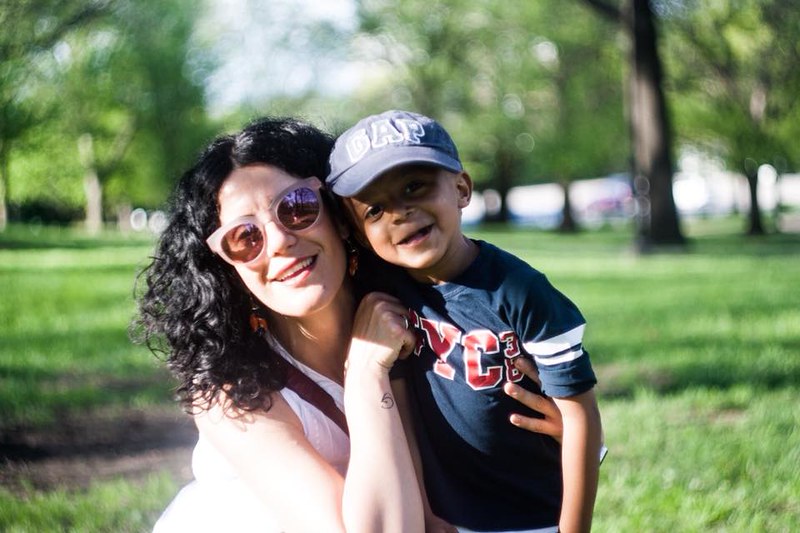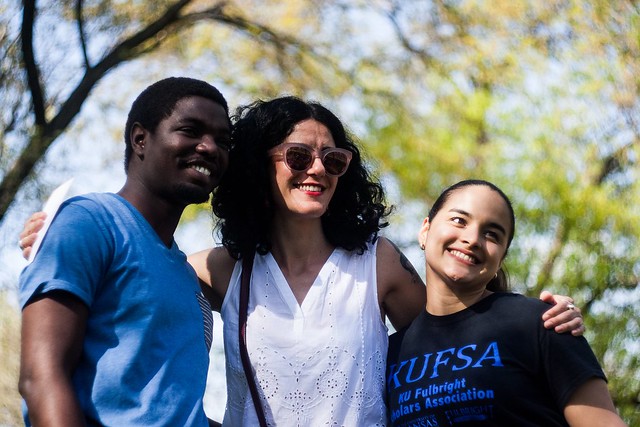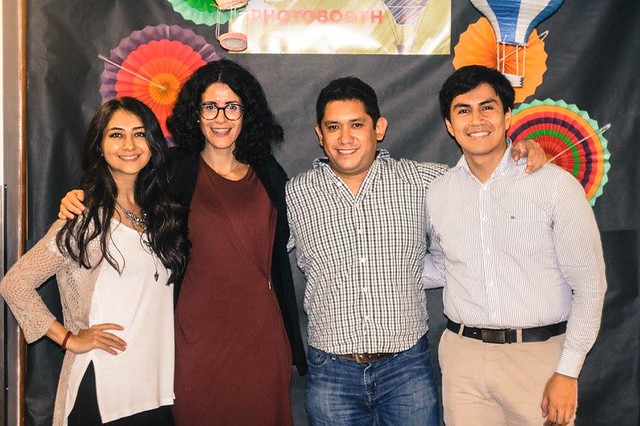It has been now over a month that I left my ‘family’ at the KU Special Education Department in Lawrence, Kansas, and I cannot think of a better time to reflect back on what has been one of the most productive (and fun!) year of my academic and personal life.
When I applied for the grant, I knew it was challenging, and I honestly did not know what to expect from the possibility of living in Kansas – when everybody was staring at me in disbelief and asking “Kansas? Why do you want to go to Kansas?”. But, I trusted my instinct and my willingness to do my research project with one of the most respected emerging scholars in my field, who has become throughout this year not just a mentor, but a friend and inspiration inside and outside of academia.
So, despite all of the questions and doubts of my friend of family – “uhm oh why Kansas?” “What?? Kansas??” – which still makes me laugh, I ended up starting my post-doc in one of the premiere institutions of higher education in the United States. Its graduate programs in special education, in particular, are consistently rated in the top five programs in the U.S. While at KU, I had the opportunity to work with some of the most distinguished scholars in the field of inclusive and special education, as well as several highly impressive emerging scholars.
I was very fortunate to carry out my study in a department that commits to educational equity for people with disabilities, promotes a culture of collaboration and support through research in schools, and creates interventions to disrupt marginalization and fosters inclusion of all learners. My project focused on how racism, ableism and other intersecting oppressions impact the experiences of children of color in European and American secondary schools. I explored how equity policies impact practices in a local school district, assuring that the two are in direct conversation with each other. My research was key in understanding ways in which policies enable and constrain inclusion, and was crucial in highlighting how current practices affect changes at policy level. It was surely interesting to speak to teachers, administrators and school professionals across different states (Kansas, New York, Ohio).
Carrying out this project was only an aspect of my hectic academic life at KU. I connected with several scholars of other American universities, I co-lectured a course on classroom management for pre-service teachers with my faculty advisor, and I participated in several research projects, seminars and conferences. Thus, I had the chance to be deeply immersed in the U.S. educational and academic world, publish new articles and create fruitful and durable connections that helped me in becoming an informed international scholar in inclusive education.
I am a mother scholar, and a further interesting aspect was to navigate the U.S. education system as a mother of a four-year-old. Finding a school and making sure he would have access to fundamental services such healthcare has been incredibly easy. Indeed, KU is very well organized to welcome students and faculty with children. They have two on-campus pre-school facilities, and my son attended one of the two, which was also home of some of the most advanced inclusive pre-school programs for children with disabilities and autism. I couldn’t ask for more, really! Indeed my son had the best time ever: he made new friends, attended the soccer team practices (yes, parents had great expectations on him being Italian), school art projects and gained a Kansas accent of which he’s really proud!
Adjusting to the life in Kansas has been really easy, and I’m sure it has to do with the Mid-Western hospitality and kindness. No matter where we were, people were always helpful and ready to give us a hand. We really enjoyed our free time visiting farms, sunflower fields or the Kansas City museums, and the Lawrence Public Library. We probably had the best Thanksgiving and Christmas dinner at my colleague’s house in Kansas City. Her generosity and hospitality were really unprecedented.
Finally, one of the highlights of my Fulbright experience has been participating to the University of Kansas Fulbright Scholar Association (KUFSA) and having the possibility of meeting and interacting with colleagues from –literally- all over the world. I participated in numerous activities with them, from potluck parties, to cultural collage festivals and more formal lectures. They have been really a family for me and they helped me in analysing reflecting a lot on aspects of the American culture.
I can surely say that Fulbright has given me the opportunity not just to be a better scholar in my field, but also to make significant friendships and connections that would surely last for a long time. It has also helped me and my son to get out of our comfort zone and adapt to a different system, and live the life differently. Now, I really feel that I have gathered some grounded experience as a scholar and as a mother to discuss the positive and less positive aspects of the American society and I’m ready to bring some of the most important findings of my research (the importance of transforming the curriculum through a Disability Critical Race Theory lens, promoting school solidarity) ‘across the pond’, in Europe.
Valentina Migliarini is 2017-2018 Fulbright-Schuman Scholar to the University of Kansas. A graduate of Roma Tre University and UCL Institute of Education, Dr. Migliarini received her PhD in Education from Roma Tre University in 2017. She has spent the past year conducting research on “Inclusive Education for Asylum Seeking and Refugee Children: Contributions of Disability Critical Race Theory to European Policy” at the University of Kansas Department of Special Education. Articles are written by Fulbright grantees and do not reflect the opinions of the Fulbright Commission, the grantees’ host institutions, or the U.S. Department of State.




